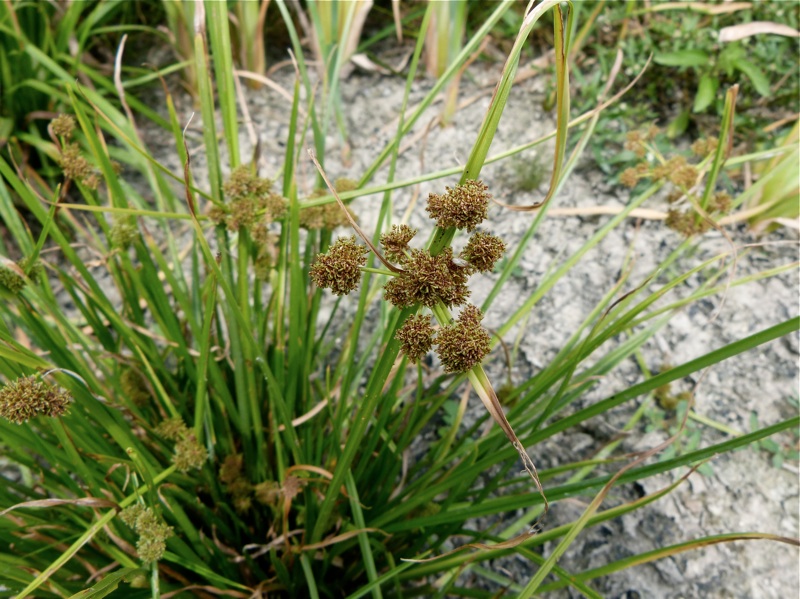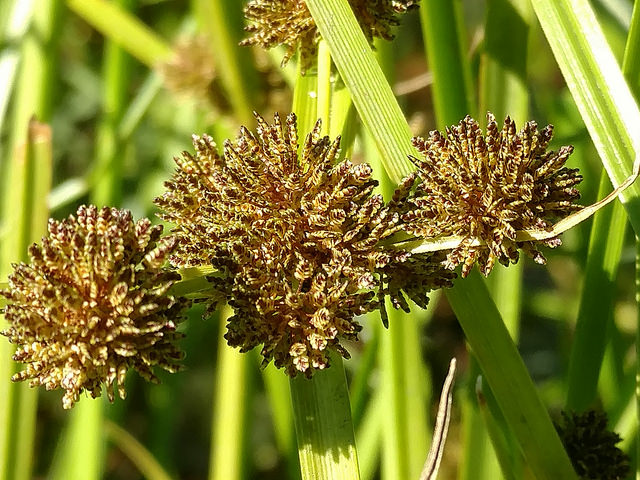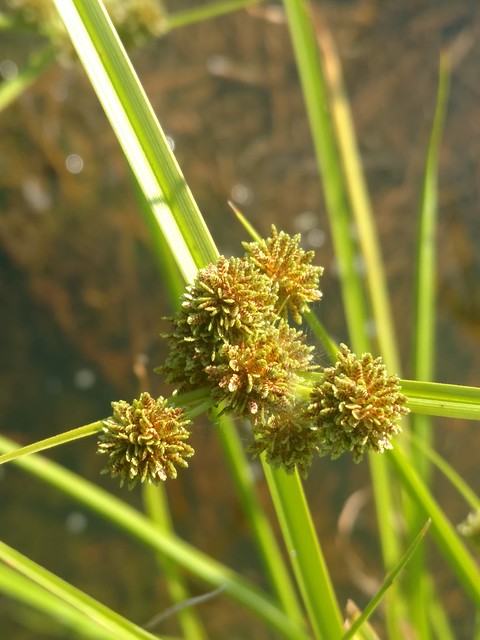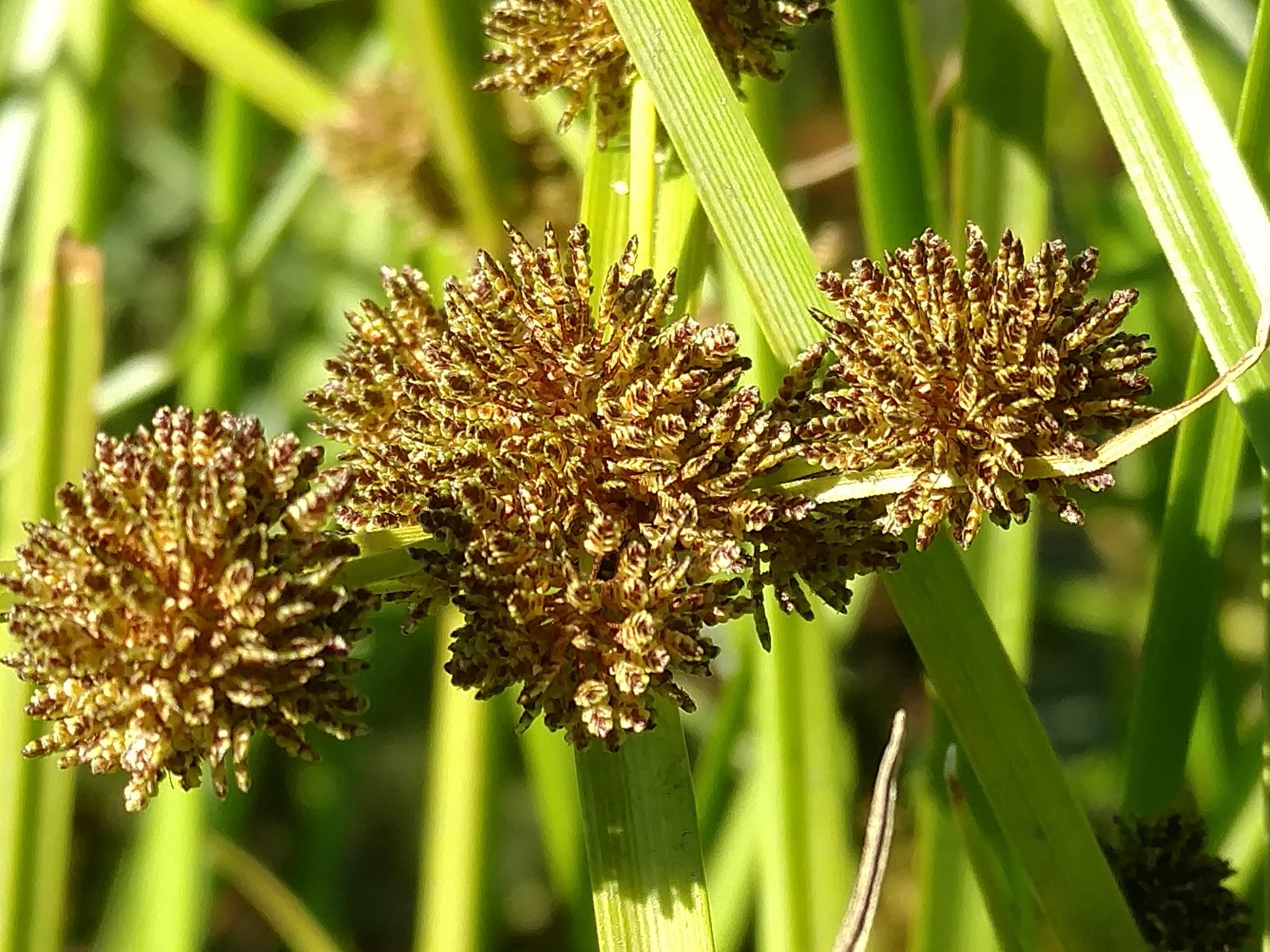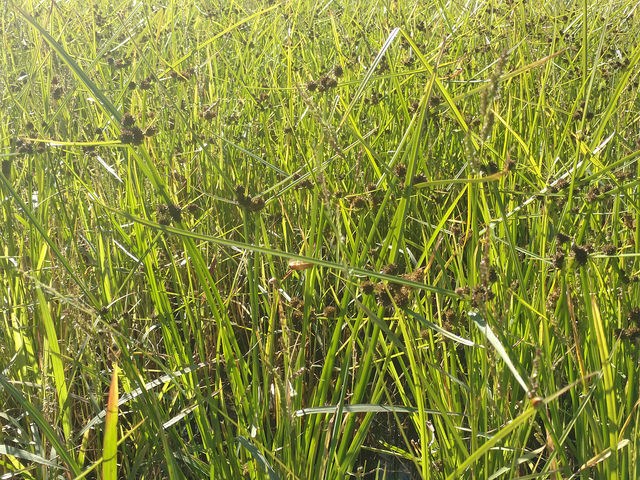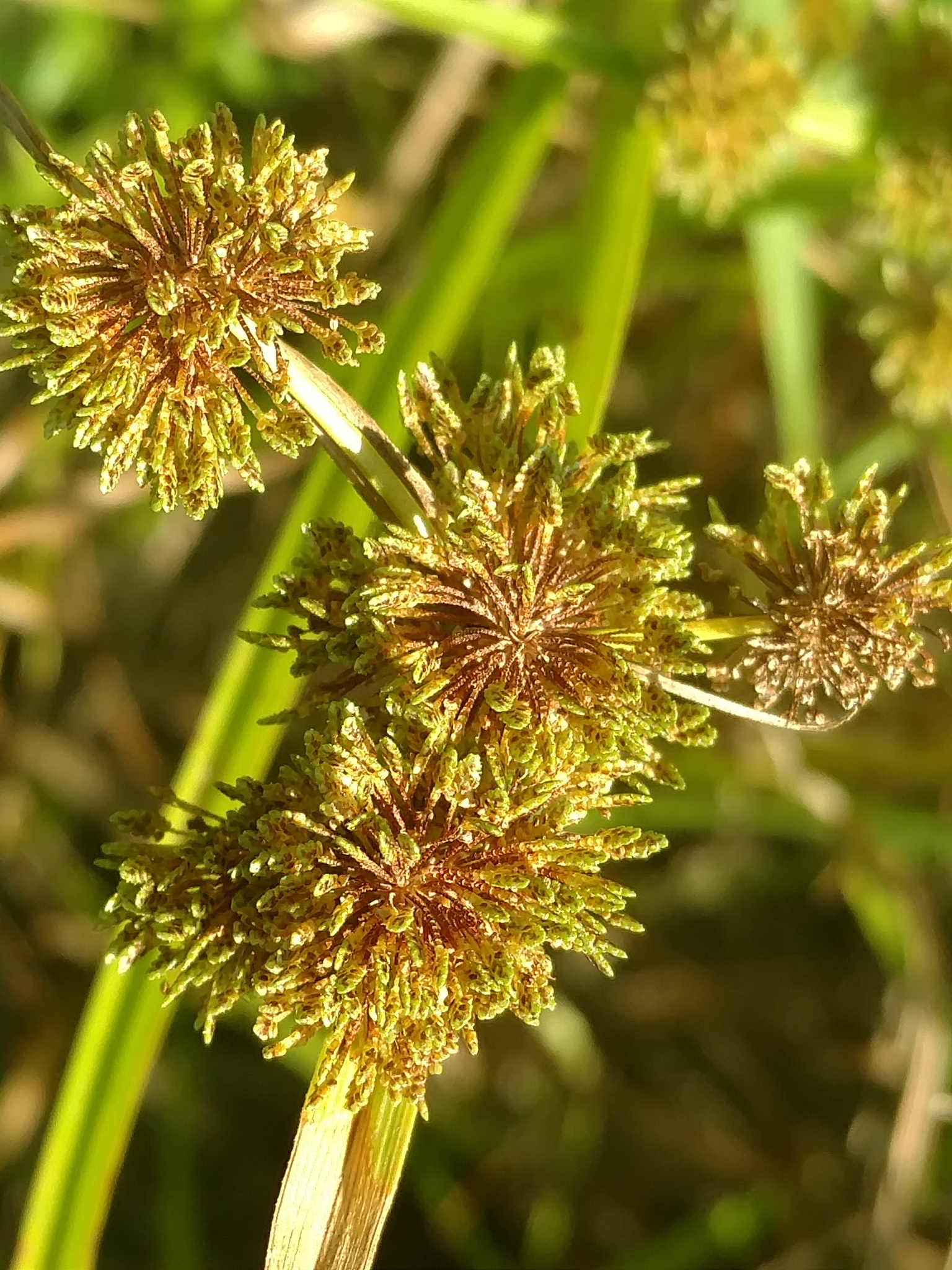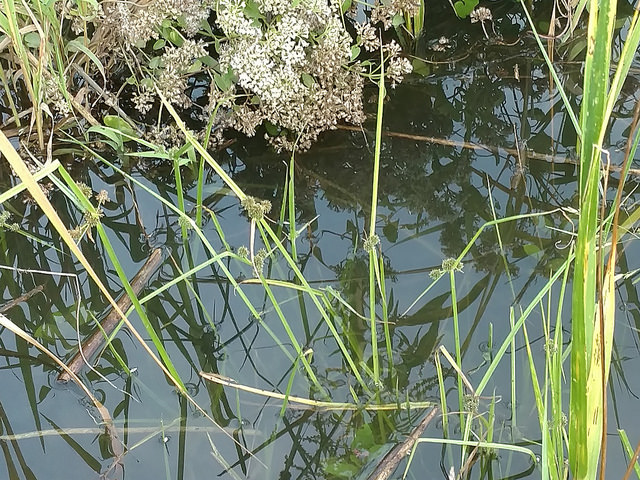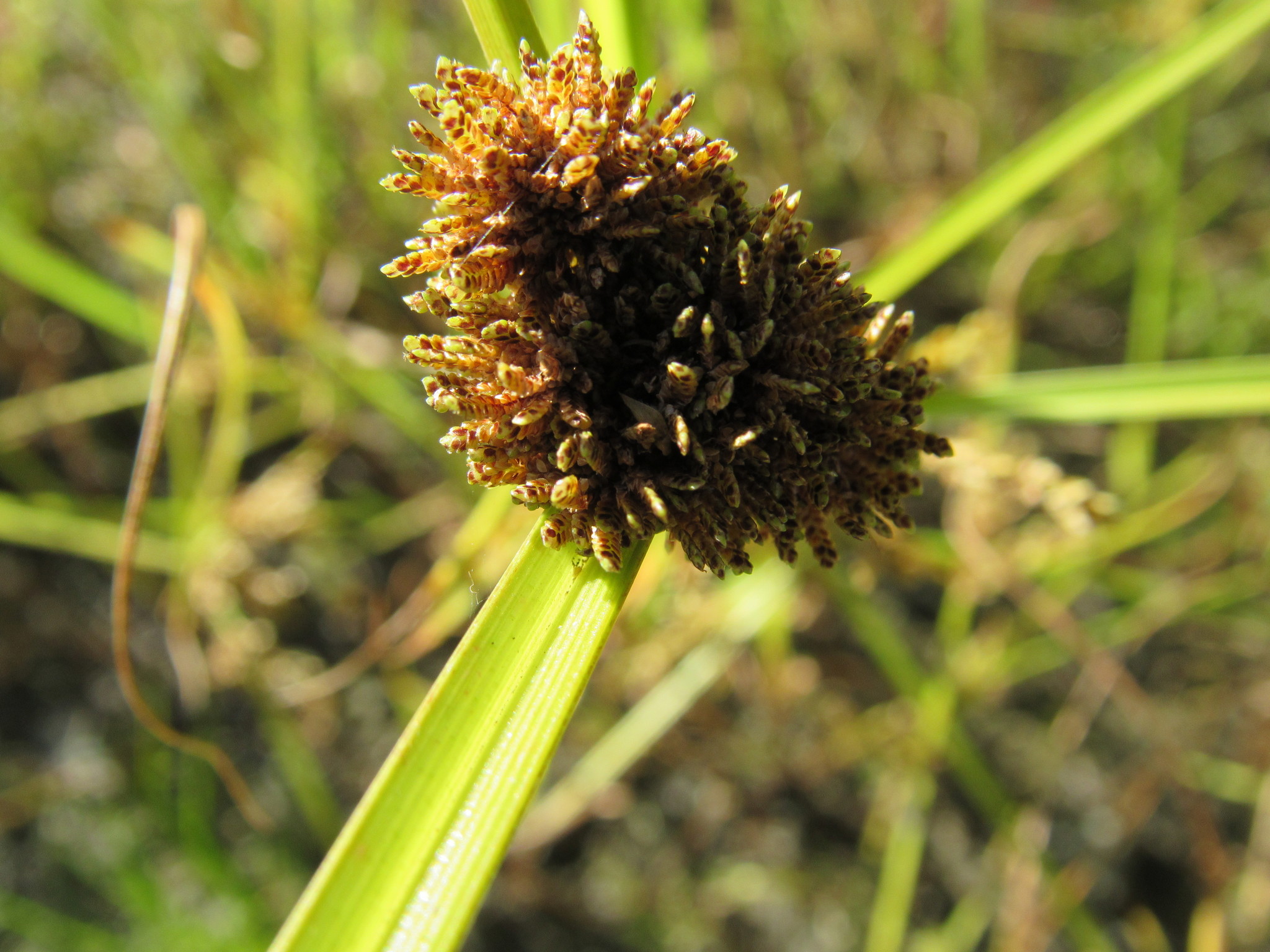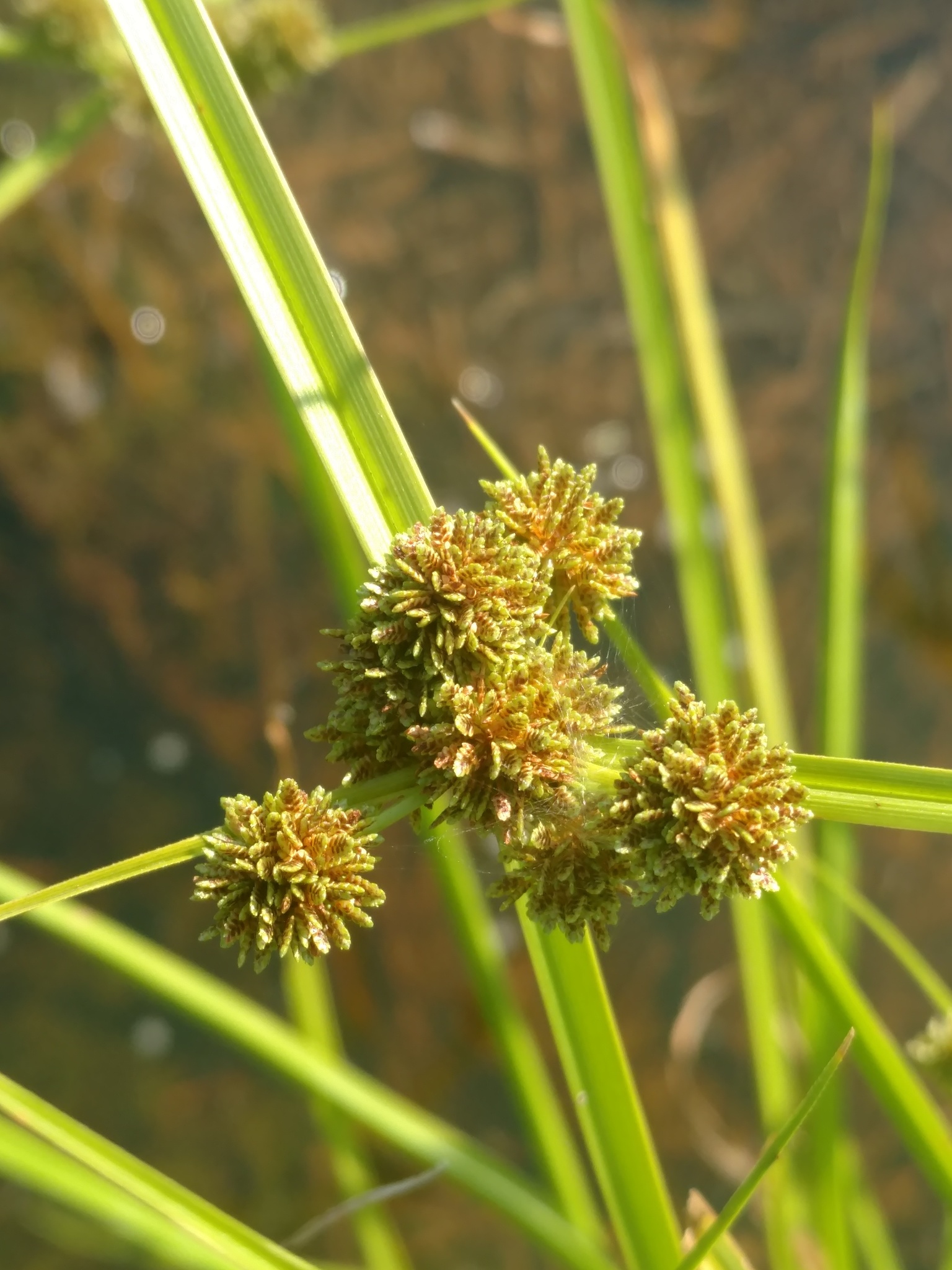Map Snapshot










42 Records
Status
Smallflower Umbrella Sedge is an invasive species in Maryland (MISC 2022).
Seasonality Snapshot
Source: Wikipedia
| Cyperus difformis | |
|---|---|

| |

| |
| Scientific classification | |
| Kingdom: | Plantae |
| Clade: | Tracheophytes |
| Clade: | Angiosperms |
| Clade: | Monocots |
| Clade: | Commelinids |
| Order: | Poales |
| Family: | Cyperaceae |
| Genus: | Cyperus |
| Species: | C. difformis
|
| Binomial name | |
| Cyperus difformis | |

| |
| Occurrence data from GBIF | |
| Synonyms[1] | |
| |
Cyperus difformis is a species of sedge known by several common names, including variable flatsedge,[2] smallflower umbrella-sedge and rice sedge.[3] This plant is native to southern Europe, most of Africa and Asia, and Australia, and it is naturalized in other areas of the world, including large parts of the Americas.[1][4][5][6][7][8][9][10][11][12]
Cyperus difformis is a plant of aquatic and moist habitats. It is a weed of rice fields, but not generally a troublesome one. This is an annual herb with one to many thin, soft erect stems reaching over 30 centimeters in maximum height. There are usually a few long, wispy leaves around the base of the plant. The inflorescence is a rounded bundle one to three centimeters wide, containing up to 120 spikelets, each long and partially or entirely covered in up to 30 bracted flowers. The flowers are light brown with areas darker brown and sometimes a yellowish or purplish tint.[13][14]
Similar Species
[edit]C. difformis can be distinguished from most visually similar species by the small size of the glumes, 0.5-0.7 x 0.5 mm, resembling tiny slightly elongated blunt beads.[15]
References
[edit]- ^ a b Kew World Checklist of Selected Plant Families[permanent dead link]
- ^ NRCS. "Cyperus difformis". PLANTS Database. United States Department of Agriculture (USDA). Retrieved 17 January 2016.
- ^ "Cyperus difformis". FloraBase. Western Australian Government Department of Biodiversity, Conservation and Attractions.
- ^ Altervista Flora Italiana, Zigolo delle risaie, Cyperus difformis L. includes photos plus range maps for Europe and North America
- ^ Miller, A.G. & Morris, M. (2004). Ethnoflora of Soqotra Archipelago: 1-759. The Royal Botanic Garden, Edinburgh.
- ^ Sita, P. & Moutsambote, J.-M. (2005). Catalogue des plantes vasculaires du Congo , ed. sept. 2005: 1-158. ORSTOM, Centre de Brazzaville.
- ^ Acevedo-Rodríguez, P. & Strong, M.T. (2005). Monocotyledons and Gymnosperms of Puerto Rico and the Virgin Islands. Contributions from the United States National Herbarium 52: 1-415.
- ^ Tanaka, N., Koyama, T. & Murata, J. (2005). The flowering plants of Mt. Popa, central Myanmar - Results of Myanmar-Japanese joint expeditions, 2000-2004. Makinoa 5: 1-102.
- ^ Sosef, M.S.M. & al. (2006). Check-list des plantes vasculaires du Gabon. Scripta Botanica Belgica 35: 1-438.
- ^ Figueiredo, E. & Smith, G.F. (2008). Plants of Angola. Strelitzia 22: 1-279. National Botanical Institute, Pretoria
- ^ Hoenselaar, K., Verdcourt, B. & Beentje, H. (2010). Cyperaceae. Flora of Tropical East Africa: 1-466.
- ^ Figueiredo, E., Paiva, J., Stévart, T., Oliveira, F. & Smith, G.F. (2011). Annotated catalogue of the flowering plants of São Tomé and Príncipe. Bothalia 41: 41-82.
- ^ Flora of China, Vol. 23 Page 226, 异型莎草 yi xing suo cao, Cyperus difformis Linnaeus, Cent. Pl. 2: 6. 1756.
- ^ Flora of North America, Vol. 23 Page 156, Cyperus difformis Linnaeus, Cent. Pl. II. 6. 1756.
- ^ Tutin. Flora Europaea.
